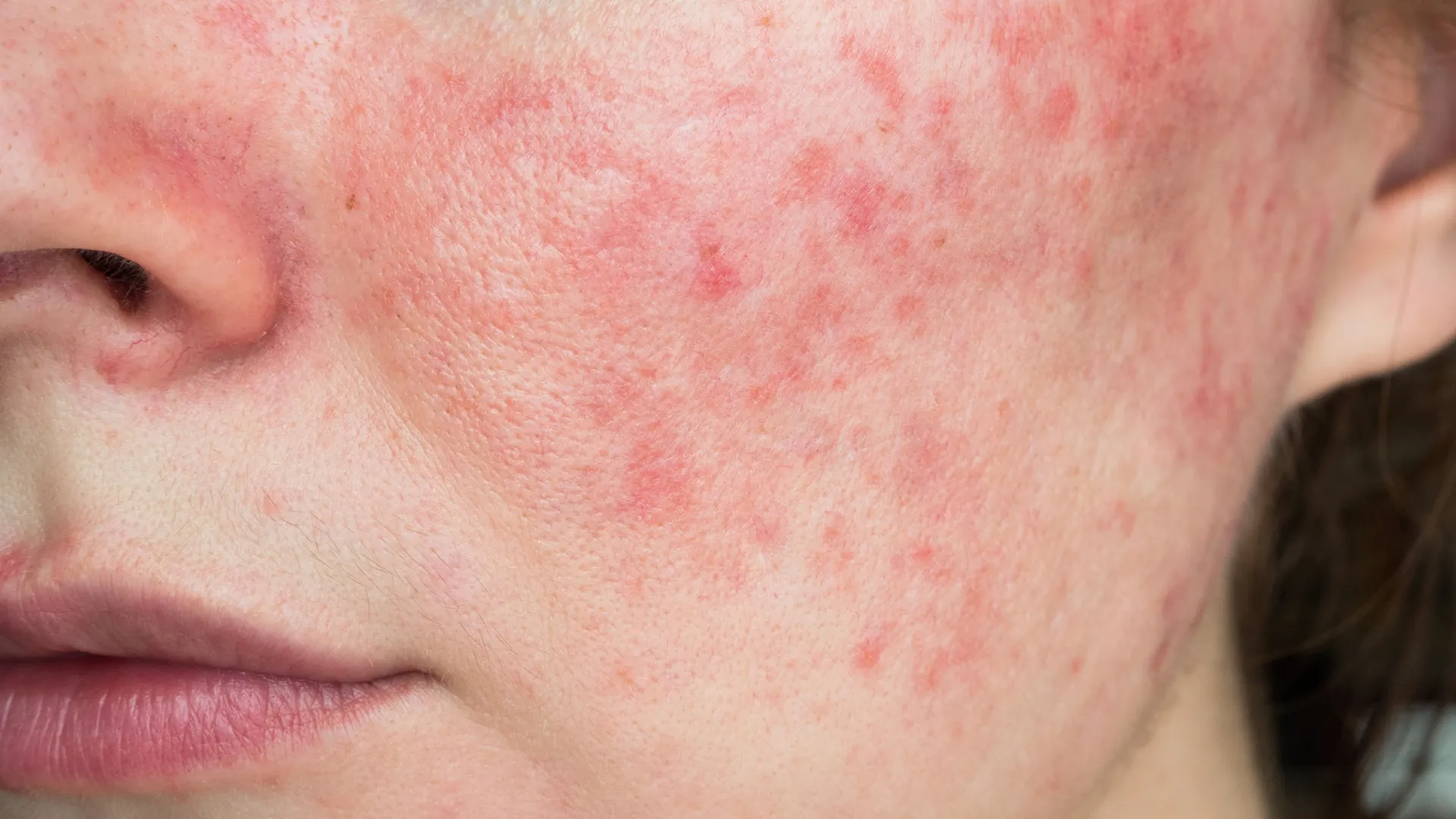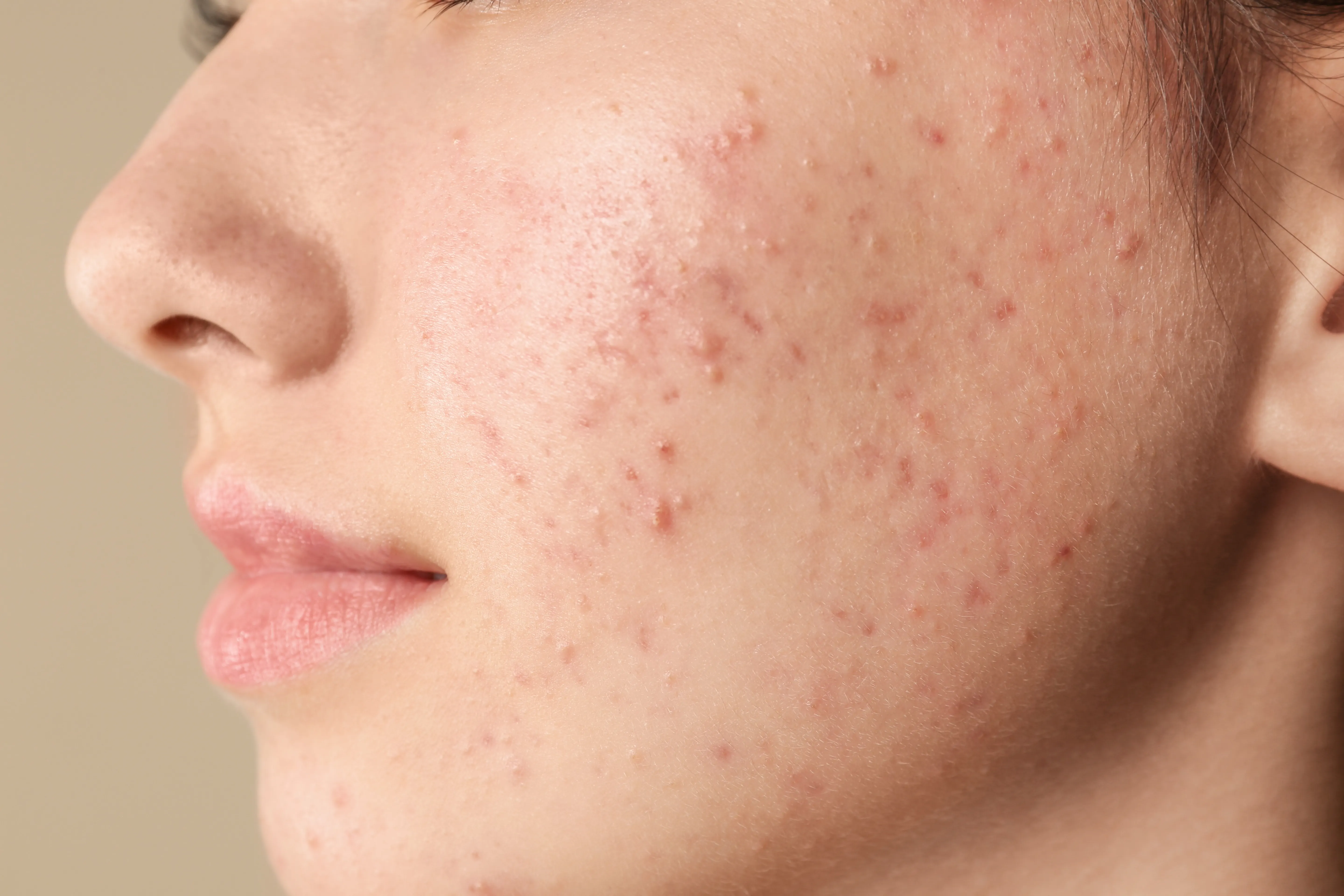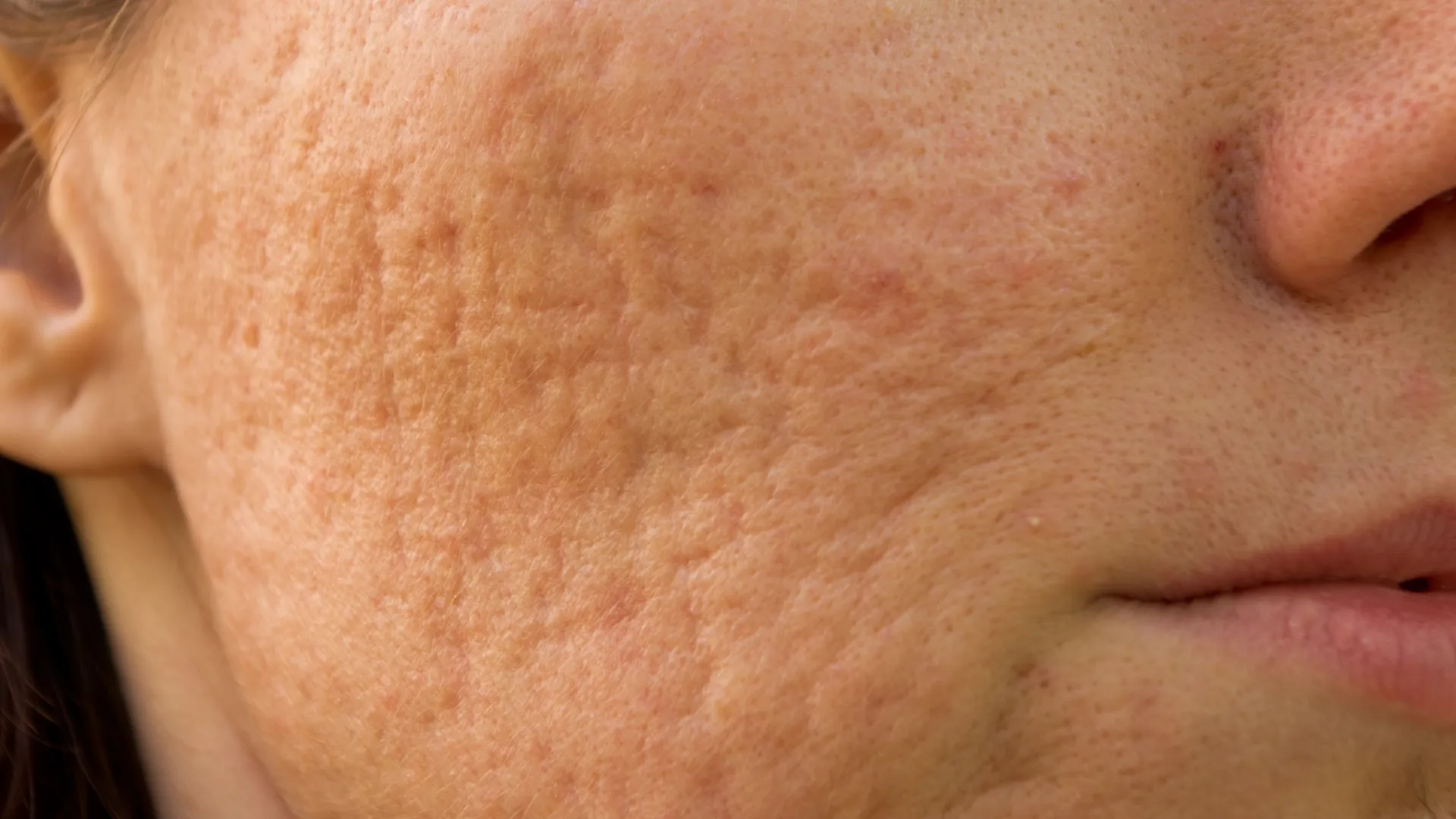Rosacea
Rosacea is a common, chronic skin condition that primarily affects the face. It often begins with flushing or redness and can develop into visible blood vessels, bumps, and acne-like breakouts. While rosacea can affect anyone, it is most commonly observed in individuals between the ages of 30 and 60, and it tends to affect women more frequently than men. Research indicates a hereditary link to rosacea and highlights the role of the Demodex parasite in its inflammatory processes.
Causes of rosacea
While the exact cause of rosacea is not fully understood, several factors may contribute to its development, including:
- Genetics: A family history of rosacea can increase your risk.
- Environmental Triggers: Sun exposure, extreme temperatures
- Lifestyle Factors: Alcohol consumption, spicy foods, and hot beverages may trigger flare-ups.
- Stress
Symptoms
Symptoms can vary among individuals, but common signs include:
- Redness (Initially, the redness is transient, appearing intermittently on the face, but it can eventually become permanent and persistent)
- Visible blood vessels
- Bumps and pimples that resemble acne
- Thickened skin, particularly on the nose (a condition known as rhinophyma)
- Ocular issues:
- Redness and Irritation: The eyes may appear red and feel irritated or dry.
- Swollen Eyelids: Inflammation can cause the eyelids to swell and become red.
- Foreign Body Sensation: Patients often experience a feeling of having something in their eyes.
Categories of Rosacea
Rosacea is commonly classified into four subtypes:
-
Erythematotelangiectatic Rosacea
Persistent facial redness, flushing, and visible blood vessels (telangiectasia). Individuals may experience a burning or stinging sensation.
-
Papulopustular Rosacea
Redness and the development of papules and pustules that resemble acne.
-
Phymatous Rosacea
Thickened skin and a bumpy texture, often affecting the nose (rhinophyma).
More common in men.
-
Ocular Rosacea
Diagnosis and Treatment
There’s no cure for rosacea, but various treatments can help manage symptoms:
- Topical medications: Metronidazole/ Azelaic Acid/ Ivermectin
- Oral medications: Antibiotics(Doxycycline, minocycline)/ Isotretinoin
- IPL therapy: IPL helps manage rosacea symptoms, particularly persistent redness and visible blood vessels. Multiple sessions are usually required for optimal results.
- Lifestyle adjustments: Identifying and avoiding triggers can help prevent flare-ups.
Frequently Asked Questions
-
Is rosacea contagious?
No, rosacea is not contagious. It is a chronic skin condition that cannot be transmitted from one person to another.
-
Can rosacea be cured?
While there is currently no cure for rosacea, effective treatments are available to help manage symptoms and minimize flare-ups.
-
What triggers rosacea flare-ups?
Common triggers include sun exposure, stress, hot or spicy foods, alcohol, and extreme weather conditions. Keeping a diary of your symptoms may help identify specific triggers.
-
How can I care for my skin if I have rosacea?
Use mild, non-irritating cleansers and moisturizers, and avoid products that contain alcohol, fragrances or exfoliating agents.


